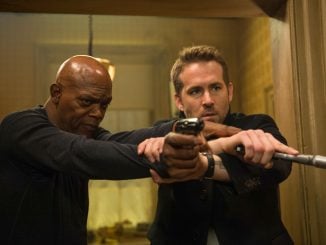
Milos Forman’s film adaptation of Ken Kesey’s 1962 countercultural novel One Flew Over the Cuckoo’s Nest swept the Academy Awards the year following its 1975 theatrical release. The movie won “the big five,” as they call it, earning Oscars for best picture, best director and best adapted screenplay.
Forman’s directorial mastery and the film’s brilliant unfolding of delinquent ne’er-do-well Randle Patrick McMurphy’s ill-fated adventure — and the lives he touches at an Oregon mental hospital — made an indelible impact on audiences. Jack Nicholson took home the Oscar for his portrayal of McMurphy, the anti-hero accused of faking mental illness to stay out of prison, and for his rebellious disposition toward authority, most notably the frigid, controlling Nurse Ratched — a symbol of cold, authoritarian control. The role, deftly performed by Louise Fletcher, earned the Oscar for best actress. The part was so precisely played, Fletcher later faced challenges getting future roles. And, incidentally, the term “Nurse Ratched” is now ingrained in the slang lexicon as a reference to a heartless woman.
With a slick, streetwise hustler attitude, Nicholson’s McMurphy becomes a figure of liberation through his interactions with and influence over the other patients, sparking a sense of camaraderie and rebellion under Nurse Ratched’s oppressive rule. The cohorts McMurphy joins include recognizable young actors Danny DeVito, Christopher Lloyd and Brad Dourif — many of whom are institutionalized more by society’s neglect than by their actual conditions. Small acts of defiance lead by McMurphy’s magnetism eventually evolve into major infractions. At one point, “Mac,” as his is new friends call him, are taken on a highjacked bus from the hospital to a fishing expedition on a boat chartered with trickery by their new hero. The incident, of course, only intensifies Ratched and the hospital’s negative position toward McMurphy.
In Dourif’s film debut, his portrayal of the shy, stuttering, emotionally fragile Billy earned him an Academy Award nomination for best supporting actor. He also won a Golden Globe for new star of the year and a BAFTA Award for most promising newcomer.
Billy is one of the most memorable and heartbreaking characters in the film — a young man struggling with intense insecurity, repression and fear, especially of his domineering mother (a key weapon in Nurse Ratched’s manipulative arsenal). Dourif’s performance is widely regarded as one of the film’s most emotionally devastating.
Challenging the oppressive routines of the ward, McMurphy’s influence on the patients grows — especially with a gentle giant Chief Bromden, a native American who pretends to be deaf and mute. Ultimately, McMurphy’s final act of defiance against Nurse Ratched leads to a full lobotomy, a tragic consequence often used on the mentally ill. Still, it’s also to an act of freedom that transcends his fate. Chief Bromden smothers McMurphy upon realizing his friend’s vegetative state and escapes himself.
The legacy of “One Flew Over the Cuckoo’s Nest” endures not only through its powerful performances — from Nicholson’s electric defiance to Dourif’s heartbreaking vulnerability — but also in its piercing message about individuality and resistance to dehumanizing authority and bleak window into the cruelty inflicted on the mentally ill. Its emotional weight and cinematic excellence still resonate today — so much so that 50 years after its release, a new 4K restoration from the Academy Film Archive and Teatro Della Pace Films, introduced by film critic Leonard Maltin, returned to theaters nationwide to celebrate and recognize its lasting impact.


